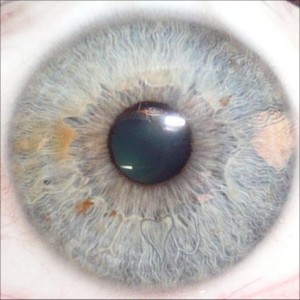
Image by Vernhart
More panopticon news raises the specter of not having any privacy left. First America, following in Britain’s footsteps, will keep the DNA on file of people who are arrested but not convicted.
Next, Britain
The mobile calls, emails and website visits of every person in Britain will be stored for a year under sweeping new powers which came into force this month. The new powers will for the first time place a legal duty on internet providers to store private data.
What really troubles [Brighton-based investigative journalist Duncan Campbell] is the automatic numberplate recognition (ANPR) system implemented by the police across the country to track vehicle tax evaders and criminals, but also potentially to record where you’ve been. Currently it can only be accessed by the police and intelligence services, and you can’t yet do it in real time – when that moment comes, it will be truly dangerous, says Campbell. The system does pose a threat to sources’ anonymity, agrees [David Leigh, the Guardian’s investigations editor]: if you assume that CCTV is watching any public journey, the only way left to meet is through a private journey in your car
So. Closed circuit TV (CCTV) watches everything in public transit and most public spaces in Britain, and license plate scanners track where you’re driving your private vehicle. Anyone with access to those two databases can, in theory, track anywhere you go.
Leigh is right about real time monitoring being a threat; the other half of the threat is recognition software which is able to reliably identify individuals and scan records, whether in real time or not. Once this occurs (and it will), combined with the ubiquitous CCTV that it is virtually everywhere in Britain and spreading in the US, from the second you step out of the door to the moment you return there will be a record of everything you’ve done in public spaces. Since most privately owned stores, malls, offices and so on tend to have CCTV, you will basically be under surveillance everywhere you go outside your house. Even inside your house is not completely off bounds, since shades don’t protect against infra-red and so.
Add this to the tracking everyone you phone, everyone you email, everyone you chat with and every website you visit, and there really isn’t very much that you do which governments, and any major corporation which can get access to the databases, won’t know. If they want to track you in real time, they can do so, and there will be very little you can do to stop it.
Privacy is very swiftly becoming a thing of the past. For whatever reason, Britain has led the way (something else the wonderful Tony “middle way” Blair has to take responsibility for starting), but the new government hasn’t stopped it, and other nations are following suit, albeit at a slower pace.
Universal surveillance is the first step towards a Big Brother state. Folks may scoff at the possibility, but as America’s founders understood, only people who don’t care about their liberties put this much power into the hands of government. Power such as this will be used, and eventually someone will succumb to the temptation to use it to its full potential.
In the meantime, after seeing the last eight years, those who are tempted to say “but if you’ve done nothing wrong, you have nothing to fear”, might want to think again.
As for myself, my business is my business, and no business of some government bureaucrat, whether George Bush or Barack Obama is President.

